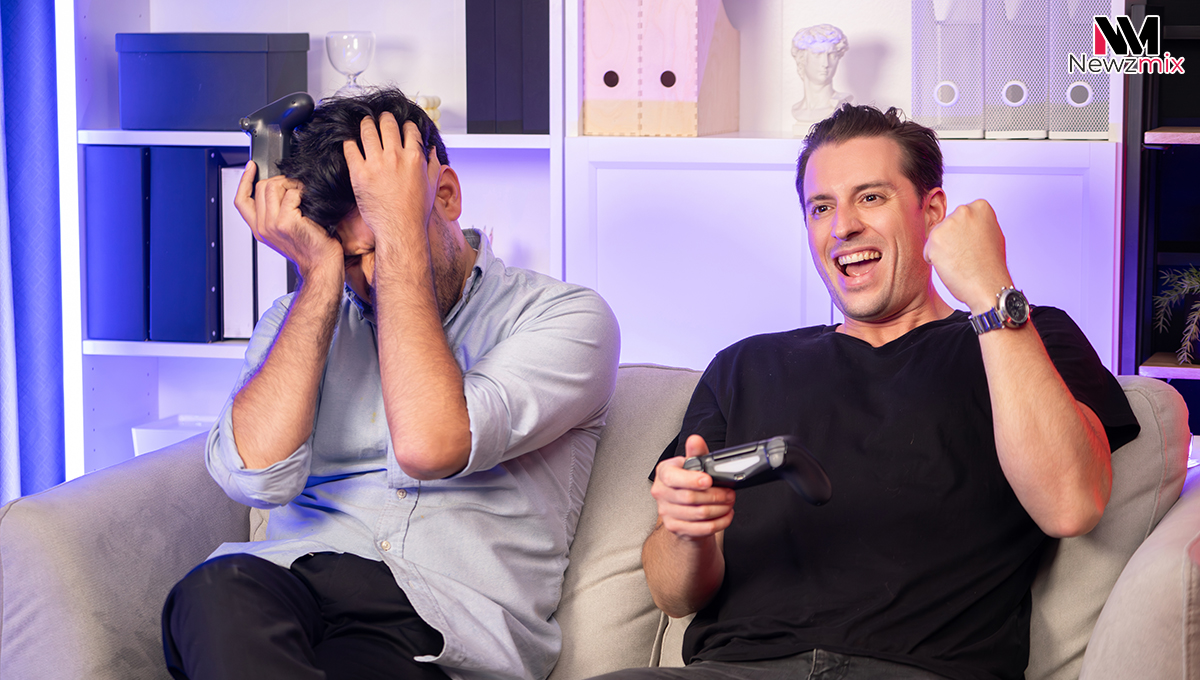Unlock Joy with Video Game Effects on Mental Health
When was the last time you felt truly relaxed after a long day? What if we told you that the answer might lie in picking up a controller instead of a yoga mat? It’s true gaming isn't just about high scores and epic quests anymore. The video game effects on mental health have become a major topic in both psychology and pop culture.
Gone are the days when video games were seen as brain-drainers. Today, they’re being recognized for something far more surprising, their ability to heal, de-stress and sometimes even inspire.
The Science Behind Video Games and Mental Health
Welcome to the digital era, where video recreations and mental wellbeing are not enemies but potential partners. Recreations nowadays are outlined not just to engage, but moreover to engage your brain in solid ways. Whether you're solving puzzles, building dream cities or exploring fantasy lands, video games offer structured environments that require focus, decision-making and speedy reflexes.
That implies you're not just zoning out you're effectively exercising parts of your brain related to attention, memory, and emotional direction. For people dealing with stress or anxiety, certain recreations act like virtual therapy sessions without the clinical setting.
How Video Games Affect Mental Health in Real Life
Let’s cut through the myths. How video games affect mental health depends on the type of game and how it’s used. Fast-paced action games may boost your cognitive agility. Cozy simulation games like Animal Crossing? They can feel like a warm cup of tea for the mind.
Some studies show that moderate gameplay is linked with lower levels of depression and anxiety. It's not magic, it's mindfulness. Immersive experiences can pull you out of spiraling thoughts and provide a sense of control, achievement and even social connection especially through multiplayer games.
Mental Health Benefits of Gaming: It's Not Just for Fun
Believe it or not, games like Tetris or Stardew Valley have been found to reduce cortisol levels (your stress hormone). These mental health benefits of gaming are often rooted in the way they distract, challenge and reward us. Players often enter a "flow state" a mental zone where time melts away and worries are left behind.
From improved problem-solving to enhanced emotional resilience, the right games can be more therapeutic than we imagined.
Gaming Stress Relief Is Real and Proven
Think of gaming stress relief as your mental spa day. Engaging with certain games helps reduce heart rate and muscle tension. Especially during high-pressure periods, people turn to games to cool off. The repetition in gameplay and satisfying rewards can be as calming as breathing exercises.
Not to mention the nostalgic comfort some games bring remember playing Mario Kart as a kid? That fuzzy feeling isn’t just nostalgia, it’s emotional self-care.
Effects of Gaming on the Brain: A Mixed Yet Promising Bag
Now, let's talk about the effects of gaming on the brain. Yes, overdoing it can lead to negative effects like poor sleep or reduced physical activity. But balanced gaming has upsides, enhanced hand-eye coordination, quicker reflexes and even increased gray matter in brain areas responsible for memory and spatial awareness.
Some games also enhance empathy, especially story-based titles where players explore moral dilemmas or social dynamics. In moderation, gaming builds both brainpower and emotional intelligence.
Popular Stress Management Games and What They Do
|
Game Title |
Category |
Mental Health Benefit |
|
Stardew Valley |
Farming Simulator |
Promotes relaxation and routine |
|
Tetris Effect |
Puzzle |
Reduces anxiety through visual flow |
|
Journey |
Exploration/Story |
Encourages emotional reflection |
|
Animal Crossing |
Simulation |
Eases isolation and promotes joy |
|
Celeste |
Platformer/Story |
Builds resilience through challenges |
Exploring Video Games and Psychology
Modern video games and psychology go hand in hand. Developers now consult psychologists to craft games that not only entertain but also nurture mental well-being. Games are also used in therapeutic settings, helping patients with PTSD, ADHD and mood disorders navigate their emotions safely.
From mood tracking in-game to story arcs that deal with anxiety and self-worth, the overlap of these two worlds is creating new ways to heal through play.
One Last Level: Impact of Video Games on Mental Health
The overall impact of video games on mental health depends on how, when and why you play. Games that offer a balance of challenge and comfort can reduce symptoms of stress, depression and even trauma. The key is mindful gaming choosing content that uplifts rather than overstimulates.
So whether you're clicking to match colorful gems or guiding a hero through a digital forest,
remember: your brain might just thank you for it.
Conclusion: Level Up Your Mental Game
In a world where stress lurks around every notification ping, understanding the video game effects on mental health opens up an unexpected form of relief. Not all screen time is created equal and a little of it might just be the digital dose of calm you didn’t know you needed.
If you’re looking for a fun way to revive, unwind and perhaps even develop, try curating your claim playlist of stress management games. From cozy to challenging, there's something out there that suits each gamer’s mind. So, go ahead. Pick up that controller. Because sometimes, the best therapy session starts with "Press Start".
